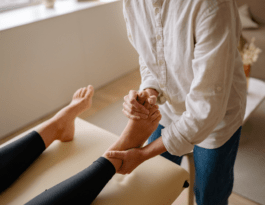We all get headaches from time to time. Sometimes, it’s accompanied by vomiting, nausea, and sensitivity to sound and light. This can last several hours to days, making it difficult to drive, work, or even carry on a talk when your head is pounding.
Although sleeping or resting is helpful when you have a headache or migraine, you can do more than get into bed and wait for it to go away. Below are some effective migraine and headache relief and prevention tips that don’t require a visit to the doctor.
1. Exercise regularly
During physical workouts, your body releases specific body chemicals that hinder the transmission of pain signals to your brain. These chemicals also aid in reducing depression and anxiety – conditions that worsen migraines.
Obesity also increases the risk of chronic headaches, lasting up to 15 days or more in a month. Maintaining a healthy body weight through diet and exercise can help manage migraines.
2. Manage stress.
Stress and headaches often come hand in hand. Even though it’s challenging to avoid daily stress, you need to keep it under control.
Update both your home and work to-do lists daily. Work on what you can manage to finish comfortably and divide large projects into manageable bits. Don’t squeeze in more chores or activities in a day. When you feel overwhelmed, a quick walk or slow stretches may refresh your energy for work.
Get yourself time to do something you like for at least 15 minutes daily. Choose any activity you enjoy, such as cycling, walking, swimming, or pursuing your hobby.
3. Recognize triggers
If you suffer from consistent headaches or migraines, you need to identify and avoid the things that trigger your migraines.
People who suffer from regular headaches and migraines should keep track of what they did or ate when they experienced a migraine to develop patterns. Different people have different triggers ranging from certain foods to sleep patterns. When you identify your triggers, avoid them as much as possible.
4. Migraine treatment
If your migraine worsens, you might need an analgesic or pain reliever. There are two main types of medications used for headache and migraine treatments: preventive and abortive. Abortive therapies focus on curbing the severity of the headache and relieving the pain. Preventive medications are taken daily and aim at reducing how often headaches happen.
Drugs such as Tylenol, Asprin, Aleve, or Advil are recommended for moderate to mild migraines; they contain a combination of acetaminophen, caffeine, and aspirin.
People with severe migraines are advised to use a medicine called Ergotamine. They may need strong pain medicines such as narcotics if the pain does not disappear.
The speed at which over-the-counter pain relievers work depends on their formulation. For instance, orally disintegrating pills and liquid medicines act faster than extended-release tablets. Additionally, the fullness of your stomach will also determine how fast pain relievers will work; a full stomach will slow the absorption of the medication.

Conclusion
There are many ways of preventing and treating headaches and migraines, but no single method works for everyone. The primary way to prevent and treat headaches and migraines is to know your triggers and avoid them. Take action on the symptoms early, and find medications that work best to eliminate migraine pain.





This helped me so much from debilitating tension headaches I had for 3 weeks. I know they were caused from Stress and Anxiety